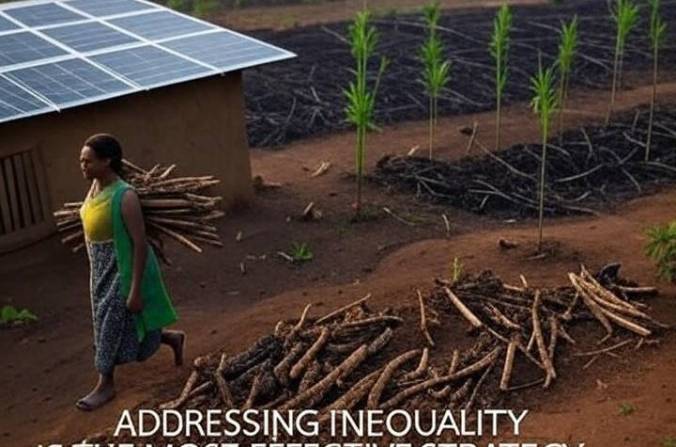.jpg)
Addressing inequality through sustainable practices in rural communities.
Addressing Inequality: The Key to Ecological Sustainability
Inequality is a major driver of environmental degradation, as those struggling to meet basic needs often over-exploit natural resources unsustainably. A Club of Rome study projects that if current trends persist, the global population will peak at 8.6 billion in 2050 and decline to 7 billion by 2100—2 to 3 billion less than other forecasts—highlighting the urgent need to address inequality for ecological sustainability.
Key Insight
Reducing poverty, increasing access to education, and empowering women can create a healthier, more equitable world while significantly benefiting environmental stewardship.
How Inequality Fuels Environmental Challenges
The poorest countries, which contribute the least to greenhouse gas emissions, bear the brunt of climate change due to their high exposure and vulnerability. Many rely on agriculture, forestry, and fisheries—sectors most threatened by climate variability (IMF). Without access to clean water, affordable food, insurance, or basic health services, these populations are forced to over-exploit resources to survive, exacerbating deforestation, desertification, and biodiversity loss.
Balancing Poverty Reduction with Environmental Protection
Environmental policies must integrate social equity to ensure that poor nations aren’t disproportionately burdened by climate actions. This approach mitigates the risks climate change poses to poverty and economic disparities, safeguarding global improvements in living standards (IMF). By addressing inequality through poverty reduction, education, and women’s empowerment, we can create a more sustainable and equitable world.
Sustainable Energy as a Solution
Transitioning to renewable energy sources is pivotal for reducing emissions and addressing financial disparities that contribute to environmental degradation. Government support for clean energy can optimize carbon release, improving both environmental quality and social equity (MDPI). In rural areas, sustainable bioenergy solutions—such as improved cookstoves, efficient use of wood and charcoal, and bioenergy from agricultural residues—can combat deforestation while enhancing food security and social welfare (IRENA, Biotechnology for Biofuels and Bioproducts).
Organizations like the International Renewable Energy Agency (IRENA) and the Food and Agriculture Organization (FAO) emphasize the role of sustainable bioenergy in sub-Saharan Africa, ensuring energy services do not compromise food security or the environment.
A Sustainable and Just Future
Integrating equitable social policies with environmental actions is essential for a sustainable and just world. Empowering vulnerable populations through education, poverty alleviation, and gender equality not only fosters social justice but also leads to a healthier planet. Social justice and environmental sustainability are two sides of the same coin, working together to create a better future for all.

